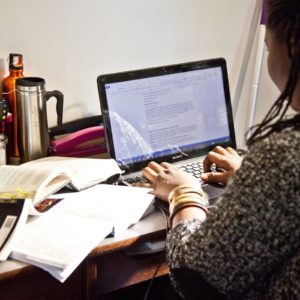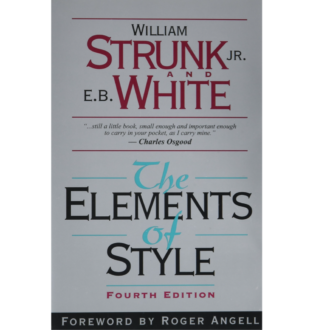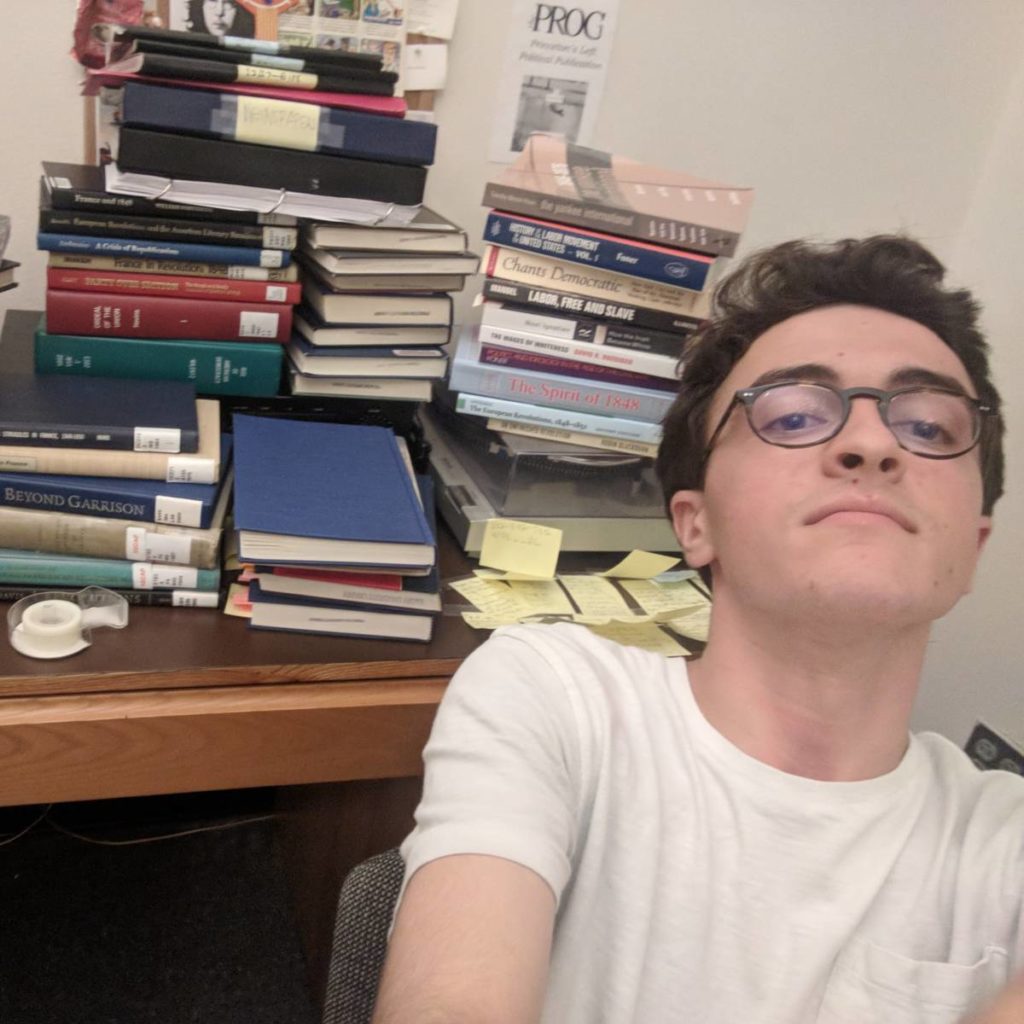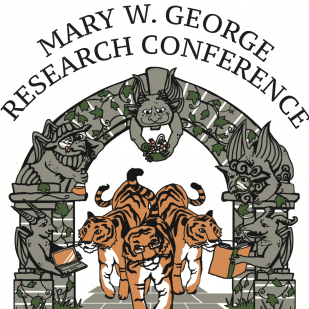While I’ve never taken online classes before at Princeton, this isn’t the first time where I’ve had to complete my semester at home. Last spring, I went home right after classes ended since all my final assignments were to be submitted online. Despite that working at home should have given me more time with fewer distractions, more often than not I found it incredibly difficult to focus on finishing the semester. With social-distance learning, I’ve been reflecting more on the problems I encountered last spring, and thought I’d share a few tips to help you stay focused during finals period, whether you’re working on those papers or studying for final exams!
Continue reading How to Stay Productive at Home During FinalsWrite On, Write Well: Lessons From a Semester Abroad
This spring semester, I am enrolled as a visiting student at Hertford College, University of Oxford. While now I am back home on Long Island taking my Oxford courses online (just as Princeton students are Zooming into their own lectures and precepts in these strange times of COVID-19), I was able to spend about two months in Oxford. It was a truly wonderful experience; the city is beautiful, the people kind, and the academics engaging and rigorous.
The course of study at Oxford is quite different from that at Princeton. There, students do attend lectures, and sometimes seminars, but most of their academic work is conducted in preparation for tutorials. Tutorials meet most weeks each term, and consist of an hour-long meeting with a professor, either one-on-one or with one or two other students. For each tutorial, students must write an essay of around 2,000-2,500 words to discuss with their professors. Professors give the prompt in advance, and students are expected to craft a response based upon weekly reading lists. These lists are usually quite long, and students are by no means meant to read each item (this would be almost impossible; my reading lists for history courses usually had around ten prescribed primary sources, and thirty or so books and articles suggested for further reading). Rather, students must explore the different sources, be selective, and find works which are relevant to the argument they wish to make. Even though this curriculum differs notably from Princeton’s, it still taught me valuable lessons about my writing process that will help me at Princeton and beyond. Working on tutorial papers, in sum, has made me approach my writing with better time management, more confidence, and more appreciation for the craft of the essay.
Continue reading Write On, Write Well: Lessons From a Semester AbroadHow to Pull Yourself Out of a Thesis-Writing Slump
We’ve all been there. We all know what it feels like to take a break—whether it’s on purpose or by accident—from a lengthy paper; it can be overwhelming when you realize that you messed up your writing process timeline. Personally, I recently took a looooong break (think: three weeks, give or take) from writing my thesis. Part of it was by accident; due to COVID-19, all Princeton students were told to move out and head back home for the remainder of the semester. The stress of packing, saying goodbye to my friends and the campus, and moving out caused my thesis to take a backseat in terms of priorities. Once I arrived home, I purposefully decided to extend my break from writing my thesis in order to unpack, get settled, and get used to online classes. One day lead to the next, and suddenly, I had spent three weeks away from my thesis.

Research Resources: Unsung Heroes, An Interview with Gender and Sexuality Studies Librarian Sara Howard
For this year’s Winter Seasonal Series, entitled Research Resources: Unsung Heroes, each correspondent has selected a faculty member, staff member, or peer working for a research resource on campus to interview. We hope that these interviews will provide insight into the variety of resources available on campus and supply the unique perspective of the people behind these resources. Here, Kamron shares his interview.
A few weeks ago, I interviewed Sara Howard, the Gender and Sexuality Studies and Student Engagement librarian. I’ve found that I often don’t use all the available research resources to my benefit. Given that we have all recently transitioned on an online learning community, consider meeting with your librarian over Zoom!

Tips on Writing a Philosophy Paper for Non-Philosophy Majors
Last spring, I took PHI 203: Introduction to Metaphysics and Epistemology. I had never taken a philosophy class before in my life, and in the beginning it was difficult to wrap my head around the theories brought up in the readings and precept, let alone execute a coherent argument in a paper. Throughout the course, I learned a lot not just about the theories and arguments in philosophy, but about the distinct style of philosophical writing itself. In drafting the papers, I realized just how different writing a philosophy paper is compared to writing papers in other humanities and social science disciplines. This post contains some tips on how to approach a philosophy paper for those unfamiliar with the field:
Continue reading Tips on Writing a Philosophy Paper for Non-Philosophy Majors5 Tips on Writing an English Paper
As a prospective English major, I’ve written a handful of English papers and have tried to learn what makes some stronger than the others. While the best way to write an English paper may differ based on whether you are writing about a poem, novel, play, or essay, and whether you plan to take a purely textual, historical, theoretical, or comparative approach, some fundamentals are applicable to many English assignments. Here are just some tips you can keep in mind while crafting your next paper:
Continue reading 5 Tips on Writing an English PaperA Few Tips for Successful Writing

As regular readers of this blog will know, several other PCURs and I are in the throes of writing our theses. Personally, I’ve been thinking a lot about writing: what makes it effective, what strategies are successful, and what I can do to improve my own. I am by no means an expert writer, but in this post I will share a few tactics that have proven useful as I progress towards a submission-ready senior thesis. While this reflection stems from my own thesis experiences, I hope that writers of all class years and departments might find in it some principles of general applicability.
Research: Have Fun With It!
The second time I met with my independent Junior Paper adviser this semester, I was nervous. I had decided following our first meeting that I wanted this JP to be the continuation of research I had, at that point, started nearly two years before (that project on the 1848 revolutions that keeps popping up in my posts), and I was apprehensive to present ideas that I felt might be stale; at the time, I struggled to think of ways to expand the project to something more mature than what I had begun as a first year student. Plus, I was feeling reluctant to be finishing up a project I had been working on for most of my college career.
My adviser and I discussed some of these concerns of mine, and right before I left, he smiled and said, “Alec, have fun with it.” He repeated this phrase at many of our weekly meetings, especially if I came feeling overwhelmed by often self-imposed worries. It was usually paired with a reassuring statement: “You know more than you think you know.” I knew more than I think I knew, and I was going to have fun.

Tips on Submitting Your Research for Publication: Part II
So you’ve just finished your JP, a dean’s date assignment, or some other research project. Considering how fast things seem to move here, you might have already forgotten about it – that’s how I felt when I turned in my R3 my first year.
However, I ended up taking another look at my R3 to prepare my presentation last spring for the Mary W. George Research Conference – the biannual writing conference – (tips on doing that here). During that process, I recognized some significant changes and expansions I could make on my R3, but I didn’t think much of it at the time.
After presenting my R3, I was encouraged by my writing seminar professor and some of my peers to expand my work and submit the manuscript for a conference or for publication. After submitting to a conference and to multiple research journals, here are some of my takeaways from the publication process:

Research Resources: Unsung Heroes, An Interview with PCUR Chief Correspondent Ellie Breitfeld ’20
For this year’s Winter Seasonal Series, entitled Research Resources: Unsung Heroes, each correspondent has selected a faculty member, staff member, or peer working for a research resource on campus to interview. We hope that these interviews will provide insight into the variety of resources available on campus and supply the unique perspective of the people behind these resources. Here, Andrea shares her interview
~~~
Continue reading Research Resources: Unsung Heroes, An Interview with PCUR Chief Correspondent Ellie Breitfeld ’20
